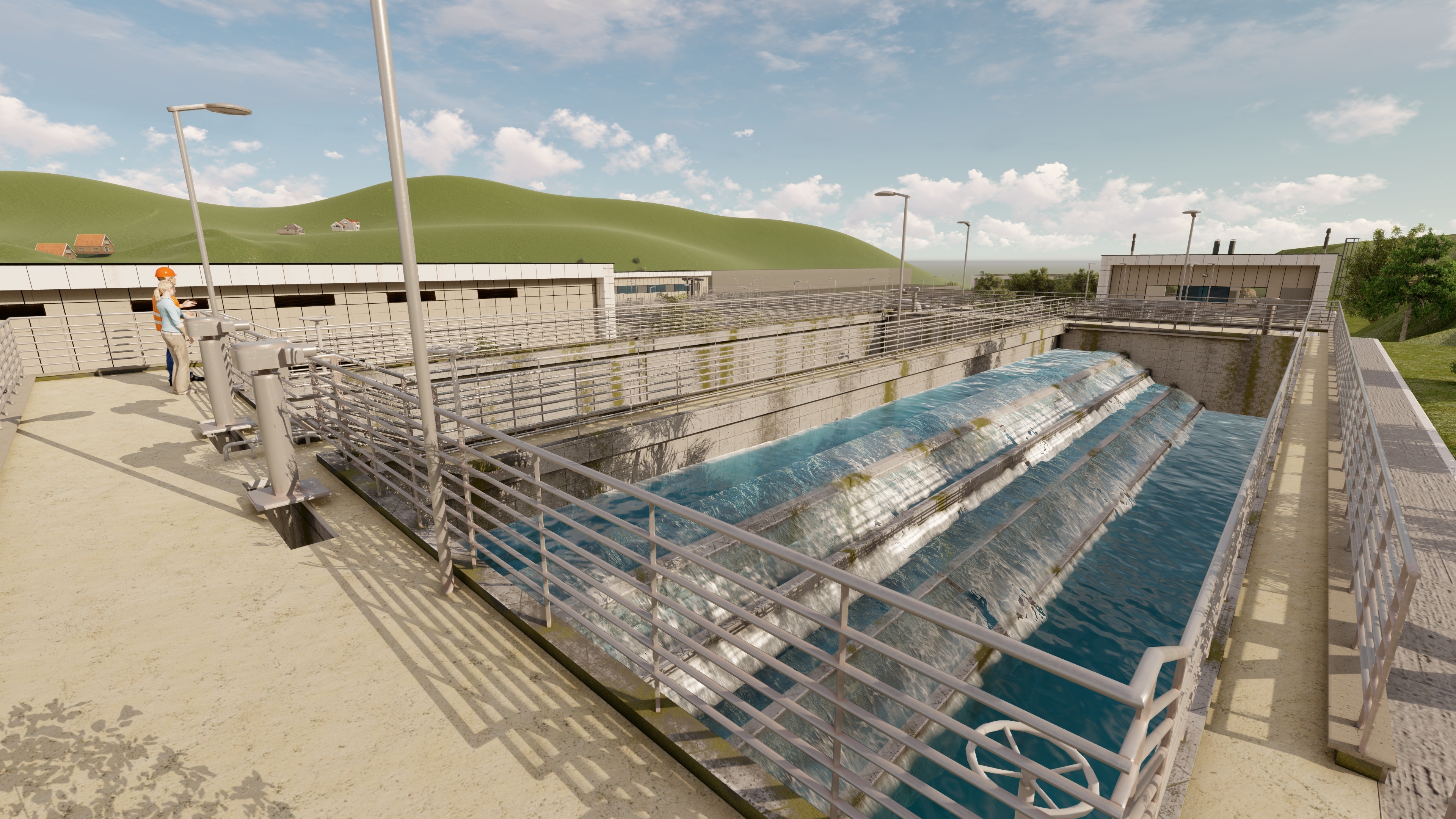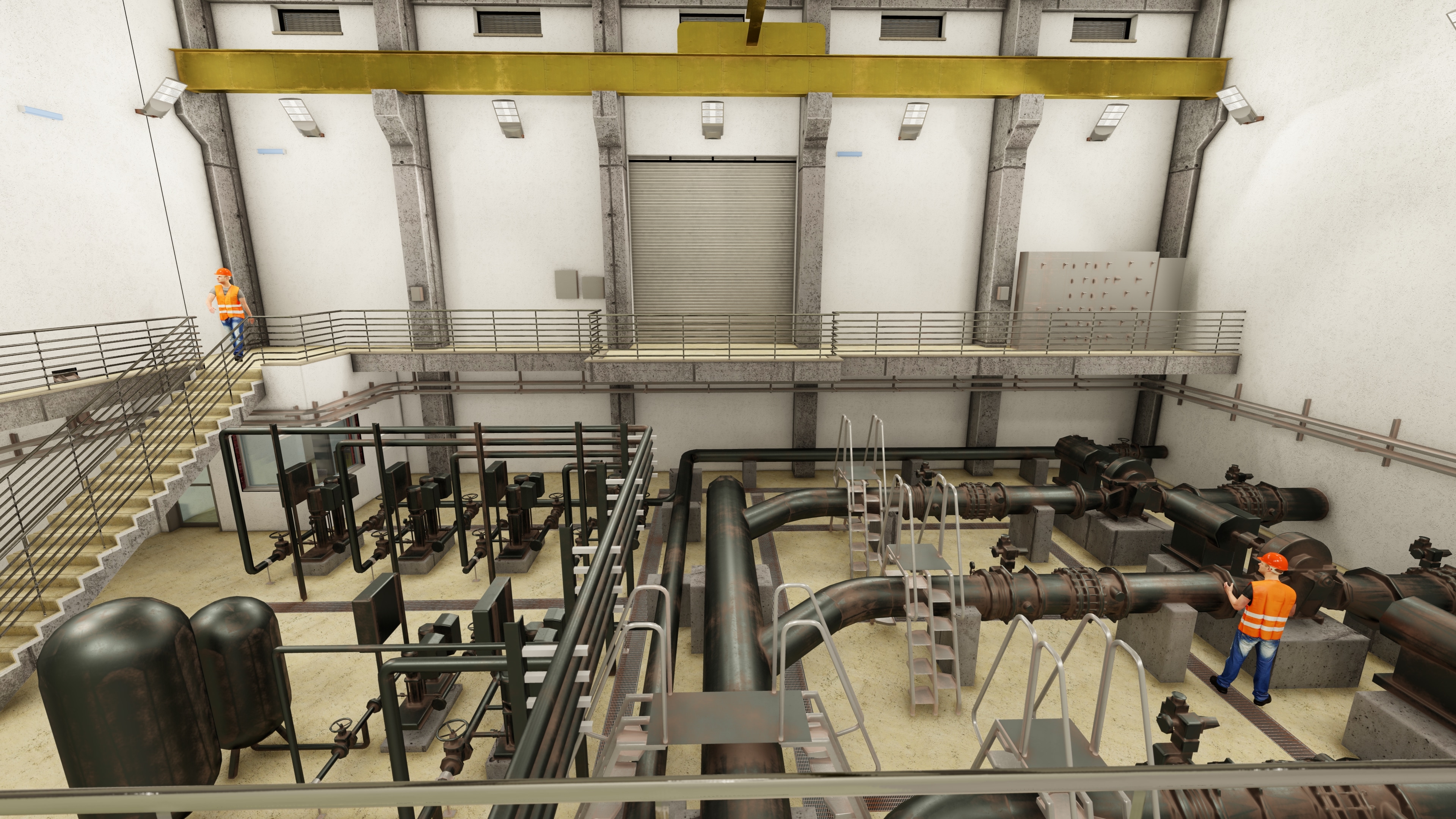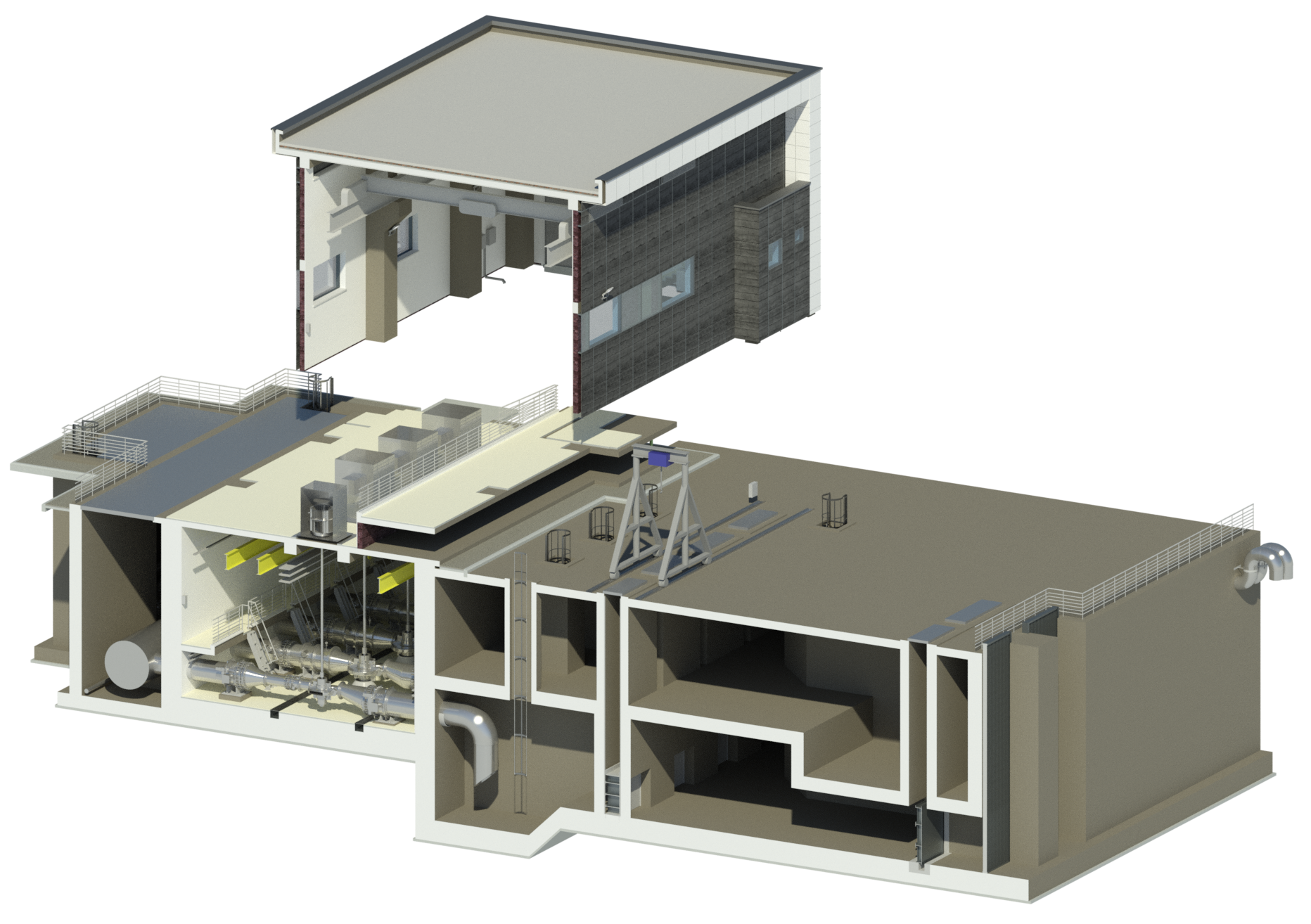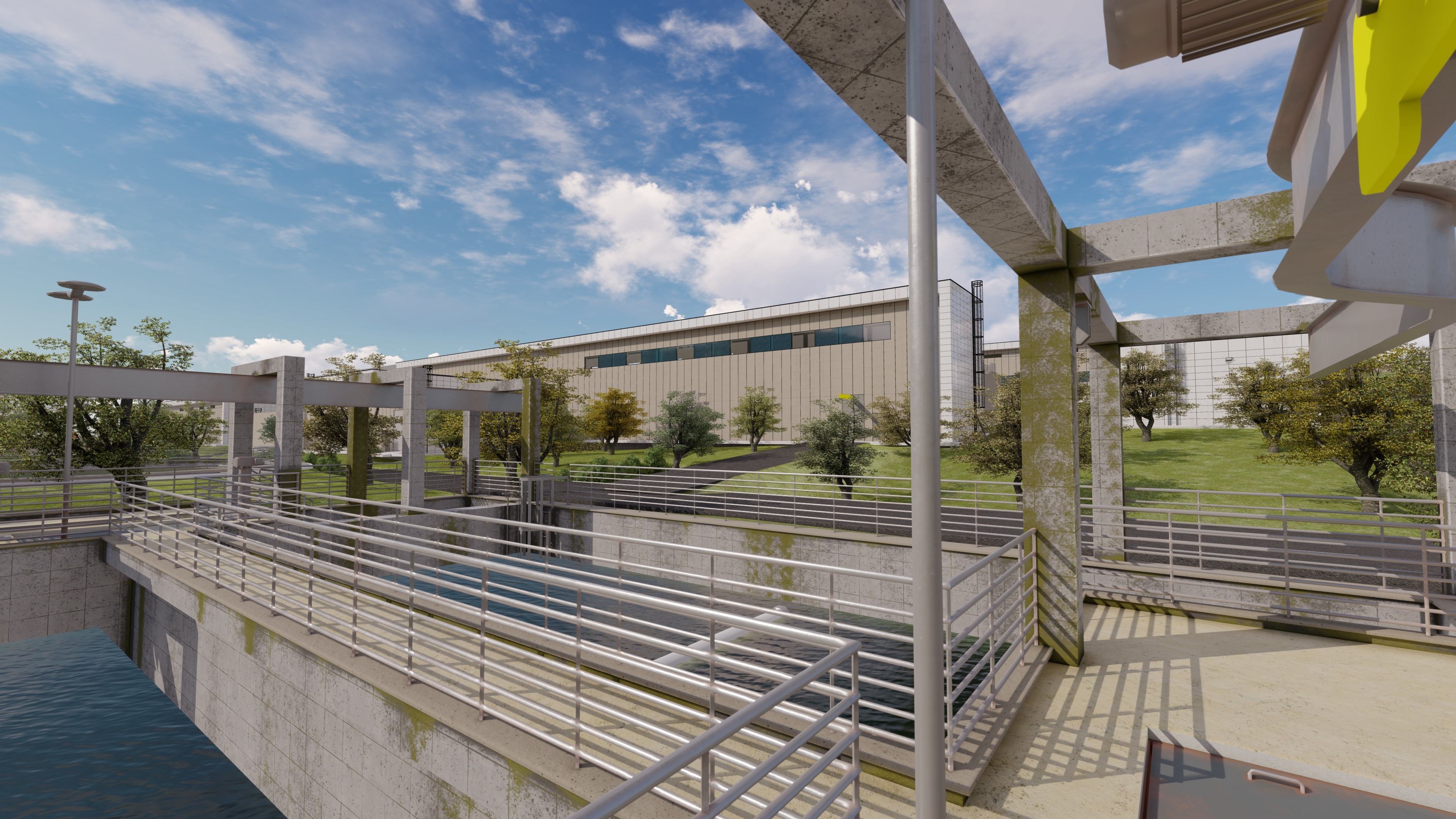Worldwide Sites
You have been detected as being from . Where applicable, you can see country-specific product information, offers, and pricing.
Keyboard ALT + g to toggle grid overlay
Revit, Civil 3D, Navisworks, and BIM 360 are at the forefront for design, coordination, and communications on this plant project.
The Istanbul Water and Sewerage Administration (ISKI) is building a new water treatment facility to provide water for the Istanbul New Airport, which will be opening at the end of 2018. Being built in two phases, the Terkos Water Treatment Facility will eventually provide 240,000 cubic meters per day of domestic and industrial water. Turkish engineering and consulting firm Su-Yapi is designing the project. The project includes 27 process buildings and a headquarters building.
The Terkos Water Treatment Facility process buildings contain a lot of complex equipment assemblies with mechanical, plumbing, and electrical systems crowded into relatively small structures. Because of this, the project’s construction schedule hinges on the effective equipment assembly. It is imperative that the project design is meticulously coordinated between the electrical and mechanical components and the surrounding structural and architectural systems. Should coordination issues with any of these assemblies arise during construction, the rework to make rectifications can be costly due to time schedule overruns as well as material waste.
In addition, Su-Yapi’s client, ISKI, wishes to remain closely involved in design process. In order to keep the design schedule on track, close communications with ISKI is essential for quick project decision-making.

"Using Revit and other Autodesk BIM solutions for our design, we are delivering a higher quality design and enhancing our firm’s communication with our client, which will ultimately reduce their construction rework costs."
—Gökmen Tuna Becerik, BIM Manager, Su-Yapı Engineering & Consulting Inc.
Plant design with BIM
Su-Yapi and the extended project team are using intelligent 3D model-based design and Autodesk BIM solutions to improve interdisciplinary coordination and enhance communications. The Terkos Water Treatment Facility is the first water treatment plant in Turkey designed using BIM technologies, and it is ISKI’s first BIM project
All the plant buildings are being designed with Revit. Architects in conjunction with process engineers developed the preliminary architectural designs, the corresponding models were then shared with and used by the structural, mechanical, and electrical engineers for their design efforts. Model-based design also extends to the site and roads, which are all being designed with Civil 3D.
Throughout the project, the team uses Navisworks to routinely combine the discipline-specific design models for whole-project visualization, review, and clash detection. The team and the client also used these models and BIM 360 cloud services to facilitate project communication.
The availability of Revit files from equipment manufacturers is also enhancing Su-Yapi’s design efforts. Accurate spatial data for the equipment assemblies is critical for identifying design clashes and helping ISKI avoid the cost of rework and material waste during construction. Therefore, to improve the accuracy of their designs, Su-Yapi designers are importing the manufacturer’s Revit models—models that have exact equipment dimensions—into their own design models.

3D visualization platform
The 3D design platform of the Autodesk software enables the design team to better visualize their developing designs and naturally avoid most clashes with other disciplines. Undetected issues are discovered when the models are combined in Navisworks for formal project reviews. This model-based clash detection combined with cloud-based BIM 360 communication between the extended design team and the client reduces the amount of time spent resolving clashes.
In addition, the 3D models and the still renderings and animations created from the models allow project stakeholders to easily see the issues and quickly resolve them. Moreover, Su-Yapi’s client can monitor the design process on a daily basis—even virtually walking through the developing design—for a better understanding of the design and proposed design variations.
As a result, the client’s confidence in the design team has increased—leading to even faster decision-making and approvals. In addition, these tools and visualizations are helping the client communicate the project to other project stakeholders such as contractors and the Turkish government, as well as the general public.

Moving forward
Su-Yapi’s design of the Terkos Water Treatment Facility will be finished at the beginning of 2019. The firm’s use of BIM on the project has:
- Increased the quality of the overall design,
- Improved the understanding of the contractors bidding on the project’s construction, and
- Enhanced communication with the client and reduced their amount of design coordination challenges.
Su-Yapi expects that ISKI’s general contractor will reduce its construction schedule due to the model-based design coordination—helping ISKI avoid the costs associated with repetitive rework, waste of material, and postponed problem solving.
Moreover, the success of this project has prompted ISKI to promote the use of BIM technologies for its other projects by requiring BIM project delivery from its other project designers and contractors.

Are you ready to innovate?
The Architecture, Engineering & Construction Collection gives you access to a set of integrated tools and powerful workflows for building design, civil infrastructure, and construction—to help you deliver your best work.